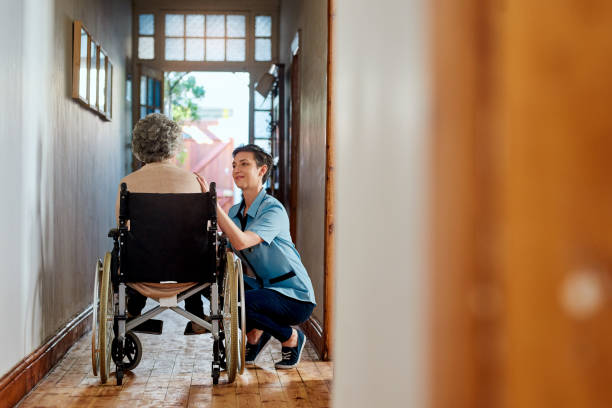As people age, their needs and abilities can vary significantly, necessitating different levels of care and support. Assisted living facilities offer a range of care levels to ensure that residents receive the appropriate assistance tailored to their individual needs. Understanding these levels of care is essential for families and individuals exploring assisted living options, as it allows them to make informed decisions that promote health, safety, and quality of life.
In this blog, we will explore the various levels of care offered in assisted living facilities and how they cater to the diverse needs of the elderly.
Levels of Care in Assisted Living Facilities
Choosing the right level of care in an assisted living facility is crucial for ensuring that seniors receive the support they need while maintaining as much independence as possible. Facilities typically offer various levels of care, each designed to address different aspects of daily living and health management.
This section will explore the primary levels of care available, helping you understand what each entails and how they can benefit residents.
Independent Living
Independent living is designed for older adults who are capable of managing their daily activities without significant assistance. These residents enjoy a lifestyle enriched with amenities such as housekeeping, meal services, and social activities, allowing them to maintain both independence and an active social life.
Personal Care
Personal care is suitable for those who require some assistance with daily living activities such as bathing, dressing, and grooming. Caregivers provide support while encouraging residents to remain as independent as possible. This level of care often includes basic health monitoring and medication management.
Enhanced Personal Care
Enhanced personal care offers a higher level of support for individuals with more complex needs. This can encompass extensive assistance with mobility, comprehensive health monitoring, and specialized services such as incontinence care. Enhanced personal care aims to provide a balanced approach to maintaining autonomy while ensuring safety and health.
Memory Care
Memory care is dedicated to residents who have Alzheimer’s disease or other forms of dementia. Facilities offering memory care have specially trained staff and tailored programs to address the unique cognitive, behavioral, and social challenges individuals with memory impairments face. The goal is to provide a safe, structured environment that promotes mental wellness and quality of life.
Skilled Nursing Care
Skilled nursing care is intended for residents who require ongoing medical care. This level includes continuous supervision by licensed nurses, management of chronic conditions, and rehabilitation services. It caters to individuals recovering from surgery, those with severe illnesses, or those with complex medical needs that require constant attention.
Hospice Care
Hospice care is for residents in the final stages of life, focusing on comfort and quality of life rather than curative treatment. It includes managing pain and other symptoms, providing emotional support, and offering services to families as they navigate the end-of-life process. Hospice care aims to ensure dignity and peace during a person’s final days.
Factors to Consider When Choosing an Assisted Living Level of Care

Selecting the appropriate level of care for a loved one in an assisted living facility involves careful consideration of several factors. Understanding these factors can help families make informed decisions that best suit the senior’s needs and preferences.
Assessment of Daily Living Activities
The first step in determining the right level of care is to assess the individual’s ability to perform daily living activities (ADLs). These include tasks such as bathing, dressing, eating, and mobility. A thorough assessment conducted by healthcare professionals can provide insights into the level of assistance required.
Medical Conditions and Health Needs
Another critical factor is the individual’s medical condition and overall health. Those with chronic illnesses, mobility issues, or cognitive impairments may require more intensive care. Understanding the specific health needs will guide the choice between personal care, enhanced personal care, or skilled nursing care.
Personal Preferences and Independence
Respecting personal preferences and the desire for independence plays a significant role in choosing an assisted living level. Some individuals may prioritize maintaining a high degree of autonomy, while others may prefer the convenience of having more support readily available.
Social and Recreational Activities
The availability of social and recreational activities is also a key consideration. Seniors who value an active social life may benefit from facilities that offer engaging programs and community events. Independent living and personal care levels often provide a rich array of activities that promote social interaction and mental stimulation.
Cost and Financial Considerations
The cost of care can vary significantly depending on the level required. Considering the financial implications and exploring potential funding options, such as long-term care insurance or government programs, is essential. Comparing the costs of different facilities and understanding what is included in the fees can aid in making a financially sound decision.
Family Involvement and Support
The proximity of family members and the level of support they can provide are also vital factors. Family involvement can enhance the resident’s well-being and make the transition to assisted living smoother. Choosing a facility that encourages family visits and participation in care planning can foster a supportive environment.
Facility Reputation and Quality of Care
Researching the reputation of the assisted living facility and the quality of care provided is crucial. Reading reviews, visiting the facility, and speaking with current residents and their families can provide valuable insights. Accreditation and certification from recognized organizations can also assure high standards of care.
Conclusion
Choosing the right level of care in an assisted living facility can be a complex and emotional decision. When making this important choice, it is essential to consider factors such as ADLs, medical needs, personal preferences, social activities, financial considerations, family involvement, and facility reputation. With careful evaluation and understanding of available options, families can select the best level of care for their loved one to promote a safe, comfortable, and fulfilling living experience.


Recent Comments